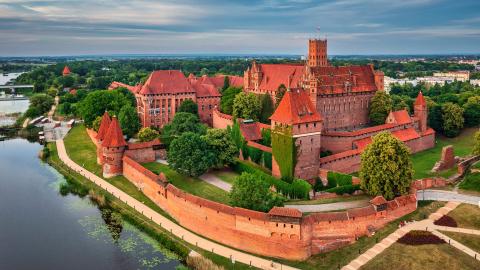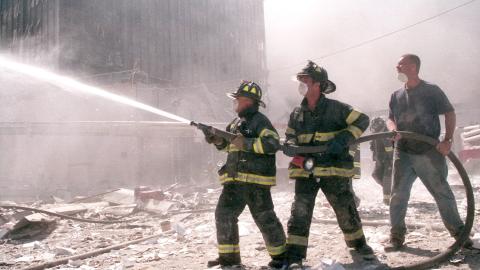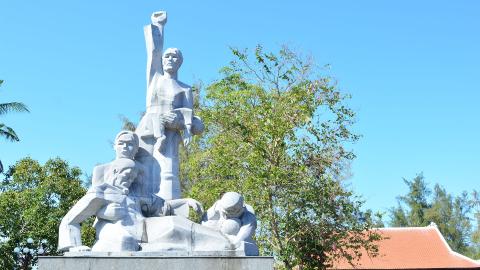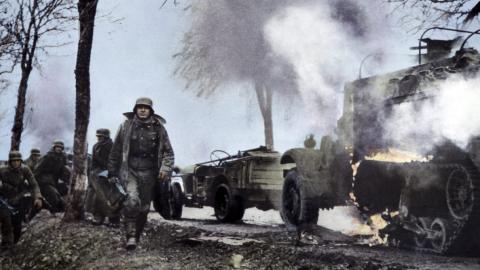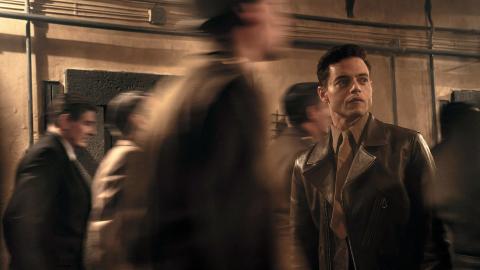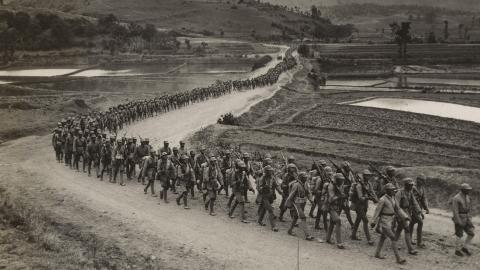When you think of the bitter battles between the forces of Soviet Russia and Nazi Germany during World War Two, images of men killing each other amid frozen wastes and ruined cityscapes will probably come to mind. But there was another struggle taking place, in the skies above the battlegrounds. And some of the greatest daredevil pilots deployed by the USSR weren't men, but women. Their devastating attacks earned them instant infamy among the Germans, who fearfully dubbed them the "Night Witches" – a name the women accepted with pride.
The remarkable story of the Night Witches dates back before the war, to the rise of intrepid female aviators in the Soviet Union. The most famous was Marina Raskova, whose record-breaking adventures in the sky made her Russia's answer to Amelia Earhart. When war broke out against Hitler, Raskova wasn't about to sit it out just because she happened to be a woman. Using her celebrity and prestige, and good standing with Stalin, Marina Raskova spearheaded the creation of female combat regiments.
One of these would become the Night Witches, who were tasked with bombing raids on enemy ammo dumps, convoys and troops. The iconic nickname came from their unusual tactic of setting their engines to idle and gliding over their targets to drop their bombs. The Germans would hear only the whooshing of their planes, which they likened to broomsticks. Hence: Night Witches.
The broomstick comparison was bizarrely apt, because the Witches' planes were far from high-tech. In fact, they flew in obsolete, clapped-out bi-planes cobbled together from plywood and canvas, which had originally been used for dusting crops. Not only that, but the women flew without radio communication, and – until 1944 – without parachutes. As one of the Witches later said, "Our pilots thought the plane itself to be like a parachute." And she meant this seriously: one of the advantages of their flimsy, lightweight planes was they were easier to glide to a safe landing if they happened to be shot.
That said, the pilots were under no illusions about the "insufficiency, primitiveness and defencelessness" of their planes, as pilot Nina Raspopova bluntly put it. Describing her experiences after the war, she recalled the terrifying time her plane was casually disembowelled by enemy fire. "My left foot slipped down into an empty space below me," she recalled. "The bottom of the cockpit had been shot away."
Another pilot was Irina Rakobolskaya, who remembered in a post-war interview how she and fellow Witches would embroider their uniforms with flowers and other merry patterns. "The first slogan of the regiment was: you are a woman, and you should be proud of that," she said. "When weather caused the cancellation of a mission, everyone stayed at the airfield and danced. It would never come into any man's head to do that, while waiting for permission to fly."
There was serious camaraderie among the sisterhood of regiment. As well as embroidering together, they would gather to share fairy tales, sing and, on the rare occasions when they were given any kind of leave, get drunk. But real breaks were vanishingly rare, and the Night Witches were often expected to embark on multiple missions a night. This was because their small, light planes could only carry a couple of bombs per run, which meant gruelling repeat journeys over enemy territory, with searchlights deliberately shone up at them to blind the pilots during the raids.
But, despite the odds, the women were not to be stopped, and morale was always high. Thousands upon thousands of bombing raids were executed, with 30 women dying during the course of the missions. Many were shot down and injured, only to trudge right back to headquarters to start all over again. One of the most famous Witches was Nadezhda Popova, who once flew no fewer than 18 bombing missions in a single night, and still had time for a spot of romance (she met her future husband after she made an emergency landing during a mission and joined a unit of wounded soldiers on their way back to barracks).
It was Popova who perhaps best summed up the stubborn resilience and passion of the Night Witches. "When the wind was strong it would toss the plane," she said. "In winter, when you'd look out to see your target better, you got frostbite, our feet froze in our boots… But we carried on flying."

